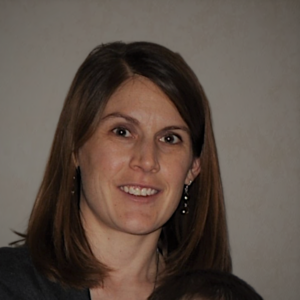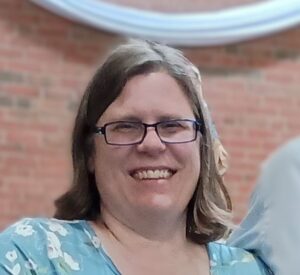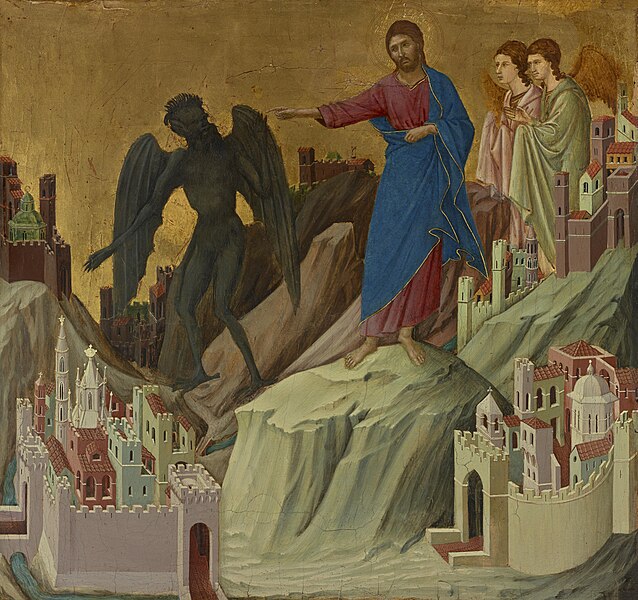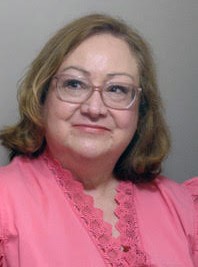You are God’s delight! Yes, you. Isaiah talks about how God called you, and as a groom rejoices in his bride, He rejoices in you. And then, in the second reading, St. Paul reminds us that we have been given spiritual gifts that help us serve the people of God. He reminds us that while our gifts are different from others’ gifts they are all manifestations of the same Spirit and are all needed. In the Gospel, we see Mary’s gift of being concerned with hospitality and caring for others. She urges Jesus to help and while His reply to her is vague, she tells the waiters to “do whatever he tells you.”
Are you ever a bit timid or even afraid to do whatever Jesus tells you to do? Or maybe you make excuses. I do the latter. Especially when I am not fond of what I am being asked to do. For example, I have felt a pull to be more intentional about intercessory prayer. In theory, it is a great idea. I believe in the power of prayer. The people who need prayers are people I care about. But praying takes time, Lord, and you know how that is in short supply. Based on my experience I know praying is important and necessary, not only for those I am praying for but for me. But I drag my feet and maybe whine a tad until I realize that saying no to Jesus is not a good plan. Ever.
And why would any of us say “no” or ignore a request from God who loves us? I think we each can think about that on our own. And then I hope we all come to the conclusion that doing what he tells us to do will always bear abundant fruit. We will be led to use the gifts we have been given for the glory of God and to build up the kingdom. As baptized Catholics, that is our purpose.
As you go through your day, ask Jesus to reveal to you the specific purpose he has for you right now. And then do it.
¡Tú eres la complacencia de Dios! Sí, tú. Isaías habla de cómo Dios te llamó, y como un novio se alegra con su novia, Él se alegra contigo. Y luego, en la segunda lectura, San Pablo nos recuerda que hemos recibido dones espirituales que nos ayudan a servir al pueblo de Dios. Nos recuerda que, si bien nuestros dones son diferentes de los de los demás, todos son manifestaciones del mismo Espíritu y todos son necesarios. En el Evangelio, vemos el don de María de preocuparse por la hospitalidad y el cuidado de los demás. Ella insta a Jesús a ayudar y, aunque Su respuesta es vaga, les dice a los sirvientes que “Hagan lo que Él les diga”.
¿A veces te sientes un poco tímido o incluso temeroso de hacer lo que Jesús te indique? O tal vez pones excusas. Yo sí lo hago, especialmente cuando no me gusta lo que me pide hacer. Por ejemplo, he sentido un impulso a ser más intencional con la oración de intercesión. En teoría, es una gran idea. Creo en el poder de la oración. Las personas que necesitan oraciones son personas que me importan. Pero rezar toma tiempo, Señor, y tú sabes que no tengo mucho tiempo. Basándome en la experiencia, sé que rezar es importante y necesario, no solo por aquellos por quienes estoy orando, sino por mí. Pero me demoro y tal vez me quejo un poco hasta que me doy cuenta de que decir no a Jesús no es un buen plan. Nunca.
¿Y por qué cualquiera de nosotros diría “no” o ignoraría una petición del Dios que nos ama? Creo que cada uno puede reflexionar sobre eso por su propia cuenta. Y luego espero que todos lleguemos a la conclusión de que hacer lo que Él nos dice que hagamos siempre dará frutos abundantes. Seremos guiados a utilizar los dones que hemos recibido para la gloria de Dios y para construir el reino. Como católicos bautizados, ese es nuestro propósito.
A medida que transcurra el día, pídele a Jesús que te revele el propósito específico que te tiene en este momento. Y luego hazlo.
 Deanna G. Bartalini, M.Ed.; M.P.A., is a certified spiritual director, writer, speaker and content creator. The LiveNotLukewarm.com online community is a place to inform, engage and inspire your Catholic faith. Her weekly Not Lukewarm Podcast gives you tips and tools to live out your faith in your daily life.
Deanna G. Bartalini, M.Ed.; M.P.A., is a certified spiritual director, writer, speaker and content creator. The LiveNotLukewarm.com online community is a place to inform, engage and inspire your Catholic faith. Her weekly Not Lukewarm Podcast gives you tips and tools to live out your faith in your daily life.
Feature Image Credit: James Baldwin, unsplash.com/photos/tilt-shift-photography-of-shoes-b9vkGONY4eI
The views and opinions expressed in the Inspiration Daily blog are solely those of the original authors and contributors. These views and opinions do not necessarily represent those of Diocesan, the Diocesan staff, or other contributors to this blog.


 Mike Karpus is a regular guy. He grew up in Michigan’s Upper Peninsula, graduated from Michigan State University and works as an editor. He is married to a Catholic school principal, raised two daughters who became Catholic school teachers at points in their careers, and now relishes his two grandchildren, including the older one who is fascinated with learning about his faith. He also has served on a Catholic school board, a pastoral council and a parish stewardship committee. He currently is a lector at Mass, a Knight of Columbus, Adult Faith Formation Committee member and a board member of the local Habitat for Humanity organization. But mostly he’s a regular guy.
Mike Karpus is a regular guy. He grew up in Michigan’s Upper Peninsula, graduated from Michigan State University and works as an editor. He is married to a Catholic school principal, raised two daughters who became Catholic school teachers at points in their careers, and now relishes his two grandchildren, including the older one who is fascinated with learning about his faith. He also has served on a Catholic school board, a pastoral council and a parish stewardship committee. He currently is a lector at Mass, a Knight of Columbus, Adult Faith Formation Committee member and a board member of the local Habitat for Humanity organization. But mostly he’s a regular guy.
 Kimberly Andrich writes from the perspective of having a hidden, chronic illness and experiencing a deep, continuous conversion through being yoked to Jesus in the day-to-day trials and joys of life. She is a wife, mother of 5, and daughter of the King. Kimberly also writes for
Kimberly Andrich writes from the perspective of having a hidden, chronic illness and experiencing a deep, continuous conversion through being yoked to Jesus in the day-to-day trials and joys of life. She is a wife, mother of 5, and daughter of the King. Kimberly also writes for 
 Tami Urcia is a midwestern gal from a large Catholic family. As a young adulthood she was a missionary in Mexico, where she studied theology and philosophy. After returning stateside bilingual, she gained a variety of work experience, traveled extensively and finished her Bachelor’s Degree at Brescia University. She loves organizing and simplifying things, watching her children play sports, deep conversations with close family and friends and finding unique ways to brighten others’ day with Christ’s love. She works full time at Diocesan in the Software Department and manages the Inspiration Daily reflections. She also is a guest blogger on
Tami Urcia is a midwestern gal from a large Catholic family. As a young adulthood she was a missionary in Mexico, where she studied theology and philosophy. After returning stateside bilingual, she gained a variety of work experience, traveled extensively and finished her Bachelor’s Degree at Brescia University. She loves organizing and simplifying things, watching her children play sports, deep conversations with close family and friends and finding unique ways to brighten others’ day with Christ’s love. She works full time at Diocesan in the Software Department and manages the Inspiration Daily reflections. She also is a guest blogger on 
 Kate Taliaferro is an Air Force wife and mother. She is blessed to be able to homeschool, bake bread and fold endless piles of laundry. When not planning a school day, writing a blog post or cooking pasta, Kate can be found curled up with a book or working with some kind of fiber craft. Kate blogs at
Kate Taliaferro is an Air Force wife and mother. She is blessed to be able to homeschool, bake bread and fold endless piles of laundry. When not planning a school day, writing a blog post or cooking pasta, Kate can be found curled up with a book or working with some kind of fiber craft. Kate blogs at 
 Former NPS Park Ranger, Catholic educator, and Youth Minister, Melissa Lucca now spends her days evangelizing family and neighbors as a stay-at-home mom. She holds an MA in Theology from the Augustine Institute and pursues personal study in her spare time. Melissa loves Ignatian Spirituality, Mother Mary, and rock climbing. If you don’t hear her and her kiddo laughing at home, then they are probably out on an adventure!
Former NPS Park Ranger, Catholic educator, and Youth Minister, Melissa Lucca now spends her days evangelizing family and neighbors as a stay-at-home mom. She holds an MA in Theology from the Augustine Institute and pursues personal study in her spare time. Melissa loves Ignatian Spirituality, Mother Mary, and rock climbing. If you don’t hear her and her kiddo laughing at home, then they are probably out on an adventure!
 Christine Arata is a San Francisco, California native. She lives a few blocks away from the ocean and a park. She finds nature inspiring. Her cat brings her comfort. She loves being creative not only with her writing but with almost everything, including her home cooking. Her studies in the Catholic faith are ongoing. In 2019, when she discovered St. Hildegard of Bingen was underrepresented by Catholics, she found a purpose. Her latest website, St. Hildegard’s Wisdom features blog posts about all of that:
Christine Arata is a San Francisco, California native. She lives a few blocks away from the ocean and a park. She finds nature inspiring. Her cat brings her comfort. She loves being creative not only with her writing but with almost everything, including her home cooking. Her studies in the Catholic faith are ongoing. In 2019, when she discovered St. Hildegard of Bingen was underrepresented by Catholics, she found a purpose. Her latest website, St. Hildegard’s Wisdom features blog posts about all of that: 
 Lily, age 23, is a Michigan native and cradle Catholic who has spent most of her life exploring her own reasons to embrace her faith fully. She attended Franciscan University of Steubenville, where she discovered the beauty of her personal relationship with Christ and the Church. After college, she worked in Montessori Education for three years and recently transitioned to nannying. She is excitedly preparing for marriage in May 2025 and spends most of her time reading, wedding planning, and enjoying her dog and family!
Lily, age 23, is a Michigan native and cradle Catholic who has spent most of her life exploring her own reasons to embrace her faith fully. She attended Franciscan University of Steubenville, where she discovered the beauty of her personal relationship with Christ and the Church. After college, she worked in Montessori Education for three years and recently transitioned to nannying. She is excitedly preparing for marriage in May 2025 and spends most of her time reading, wedding planning, and enjoying her dog and family!
 Dr. Alexis Dallara-Marsh is a board-certified neurologist who practices in Bergen County, NJ. She is a wife to her best friend, Akeem, and a mother of four little ones on Earth and two others in heaven above.
Dr. Alexis Dallara-Marsh is a board-certified neurologist who practices in Bergen County, NJ. She is a wife to her best friend, Akeem, and a mother of four little ones on Earth and two others in heaven above.
 Kathryn Mulderink, MA, is married to Robert, Station Manager for Holy Family Radio. Together they have seven children (including Father Rob), and eleven grandchildren. She is President of the local community of Secular Discalced Carmelites and has published five books and many articles. Over the last 30 years, she has worked as a teacher, headmistress, catechist, Pastoral Associate, and DRE, and as a writer and voice talent for Catholic Radio. Currently, she serves the Church by writing and speaking, and by collaborating with various parishes and to lead others to encounter Christ and engage their faith. Her website is
Kathryn Mulderink, MA, is married to Robert, Station Manager for Holy Family Radio. Together they have seven children (including Father Rob), and eleven grandchildren. She is President of the local community of Secular Discalced Carmelites and has published five books and many articles. Over the last 30 years, she has worked as a teacher, headmistress, catechist, Pastoral Associate, and DRE, and as a writer and voice talent for Catholic Radio. Currently, she serves the Church by writing and speaking, and by collaborating with various parishes and to lead others to encounter Christ and engage their faith. Her website is 
 David Dashiell is a freelance author and editor in the Nashville, Tennessee area. He has three children, a degree in theology, and enjoys writing about philosophy, theology, culture, music, and comedy. You can find his personal blog, Serious Daydreams, on
David Dashiell is a freelance author and editor in the Nashville, Tennessee area. He has three children, a degree in theology, and enjoys writing about philosophy, theology, culture, music, and comedy. You can find his personal blog, Serious Daydreams, on 
 Allison Gingras (
Allison Gingras (